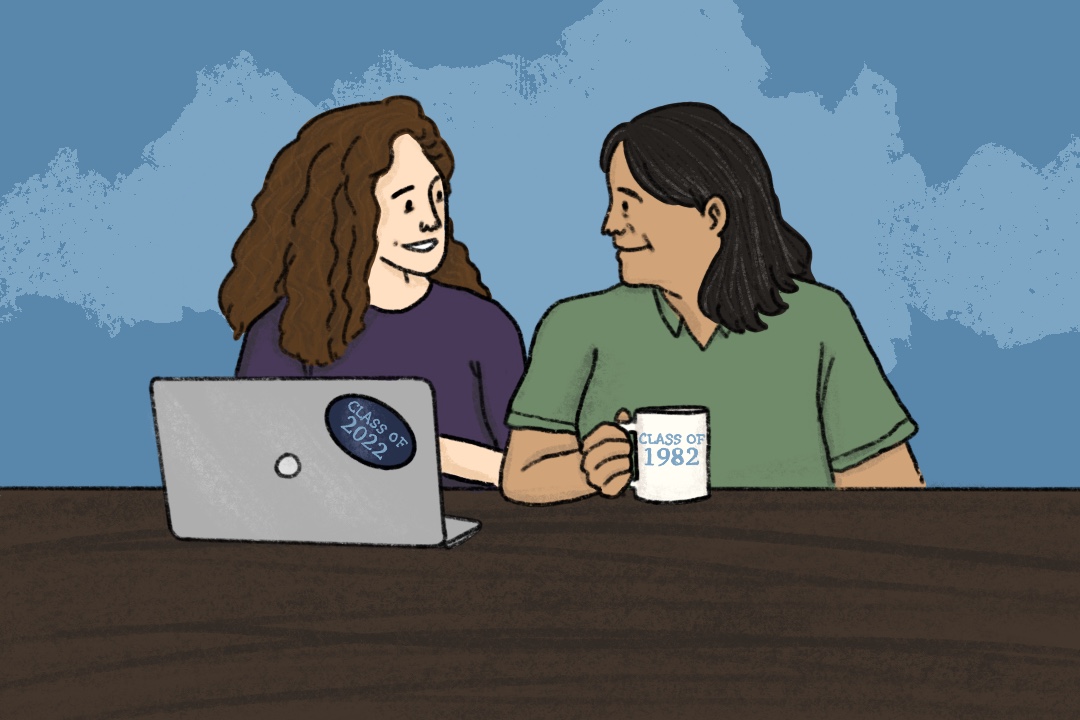U of T hosts many different programs where alumni can give back to their alma mater. Split into two divisions, there are 10 college and campus mentorship programs and 29 faculty and department programs across U of T.
Martin Kengo, community engagement coordinator, and Melissa Heide, alumni engagement officer, sat down with The Varsity to talk specifically about the Alumni Mentorship Program at UTM.
The program
The program takes third- and fourth-year UTM students, as well as recent graduates, and pairs each of them with an experienced alum to provide extra support for students trying to figure out how to enter life after graduation.
Heide said that due to the pandemic, instead of taking on 40 to 50 pairs of mentors and mentees, they downsized to about 30 pairs because they saw some new opportunities to better the program.
They also shifted their focus from pairing students based on their program and career plans and tried to connect students and alums based on their social identities or lived experiences. “Traditionally, with this type of mentorship program, matches would be made based on career interests, industries, [and] programs, but we recognize that there’s also a need [for] students to connect with alumni based on social identities,” Heide said.
More than advice
Kengo said that with the ongoing pandemic, the “importance for students to have access to support just for guidance,” is crucial.
Kengo said that the program is more than suggesting tips for a better LinkedIn profile; it’s being able to find support from someone who understands the mentee’s situation. “It’s about saying, ‘Hey, yeah, I’ve been through that as well’… That’s part of the mentorship relationship.”
Heide explained that there are different criteria for joining the program as a mentor or mentee. Alum mentors are expected to have at least five years of post-graduation experience to be able to help a younger student navigate through the final years before graduation and the period after that.
For current students looking into the program, the program asks that they wait until their third or fourth year and have above a 2.0 cumulative GPA to apply. Students are also required to meet with a career counselor before the program to have a strong grasp of their aspirations after graduating and their current position. Kengo emphasized that students don’t need to have permanent answers, but just a sense of where they generally see themselves in the future. A short survey is also part of the application process.
“Make the most of it”
Kengo shared a quote from a previous mentee who said, “I entered the mentorship program being fueled with insecurity and self doubt… But with my mentor’s assistance, I landed five job interviews, being accepted into all of them, and [gained] the confidence to talk to my professors and ask for their help as well. I finally got into my research programs that I’ve been aiming for since first year.”
“My mentor really restored a lot of faith in me, which is super wonderful,” they said.
“This program exists to create a little bit more certainty and knowing that somebody is here to support you, in those periods of uncertainty. So make the most of it,” Kengo said.


